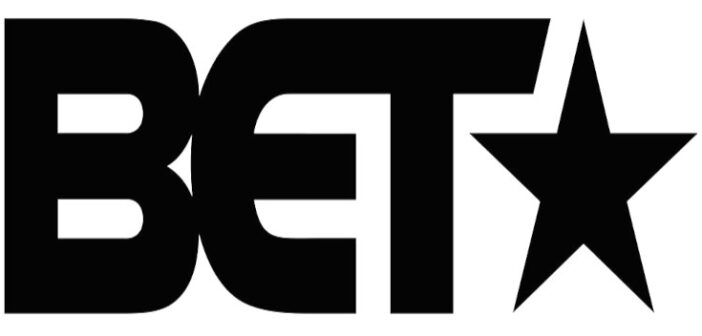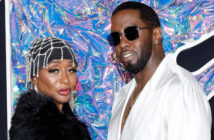Paramount Media Networks, current owner of Black Entertainment Television (BET), wants to sell.
African-American media and entertainment moguls, Sean ‘Diddy’ Combs, Tyler Perry, Byron Allen and another black conglomerate have been reported to be interested in buying Black Entertainment Television, BET.
According sources close to Diddy, the rapper turned business mogul is exploring the opportunity to purchase BET as a part of his strategy to build a Black-owned global media powerhouse.” Although, a second source added he’s not yet in talks with Paramount about it – though the company reportedly isn’t in talks with anyone yet, including the two others who expressed interest in the sale, Tyler Perry and Byron Allen.
BET Media Group brands include: BET, BET+, BET Studios and VH1.
The other black owned conglomerate, Group Black, a Miami-based media company, has expressed interest in buying a majority share in BET Media Group. The New York Times reported Friday. The company was founded in 2021 by Travis Montaque, Richelieu Dennis and Bonin Bough.
BET was launched in 1980 by founder Robert Johnson as a channel specifically catered to African-American audiences. Paramount acquired BET in 2000 for $2.3 billion. In addition to BET linear channel and VH1, BET Media Group oversees BET+, a joint venture with Perry, and BET Studios, a joint venture with Kenya Barris and Rashida Jones.
According to data from S&P Global Market Intelligence, BET’s annual profit — not including BET+ or the network’s studio business — declined from $300 million to $215 million in the last 10 years.
According to the Variety, Diddy is most interested in BET’s return to being a Black-owned brand, which he believes is “better for the business, for the culture and for building wealth in the Black community.”
Tyler Perry currently owns a minority stake in BET and he also produces a large portion of the programming available on BET and streamer BET+, which he helped launch in 2019.
Byron Allen acquired the Black News Channel for $11 million, which joins The Weather Channel along with digital outlets such as Local Now, HBCU GO and TheGrio. His company, Allen Media Group, has reportedly invested over $1 billion in the last 3 years to acquire 27 ABC, NBC, CBS and Fox affiliates according Variety.
This article explores the scenarios leading to African-American’s disenfranchisement with BET, the so called black media network that was supposed to cater to their culture, perspectives and experiences.
BET was created by founder, Robert Johnson, to bring authentic African-American voices to cable. Back then, the black-owned channel was a symbol of black success. Johnson’s dream was to make BET the Motown of television or a Disney for black viewers.
Ever since the evolution of Hip-hop culture into mainstream media, BET, not wanting to be left out, embraced the new fad wholeheartedly. However, this was sadly done at the expense of other program line ups that other black folks, especially the older ones, felt were crucial to the culture.
Critics believe that BET’s move to eliminate shows that focused primarily on important social issues relevant to African Americans perspective was without a doubt its biggest mistake.
The criticism of BET does not start in the aftermath of its takeover by Viacom, then parent company of BET.
Prominent black TV presenter, Tavis Smiley, in 2001 responded after his show “BET Tonight” was canceled. He responded “I then find it curious that Mr. Johnson would move to dismiss me for selling one interview in five years to another network, when BET refused to broadcast either one of our historic black think-tank symposiums which so many watched on C-Span.” Smiley was fired for conducting an interview for another television network.
Many were of the opinion that BET’s move away from shows that focused on important social issues relevant to African Americans culture was their biggest mistake. This was what helped it attract its target audience.
Nowadays, BET’s programming is so predictable such that it doesn’t necessarily reflect the diversity of Black experiences and perspectives. Many are repulsed by its constant features stereotypical features and shallow portrayals of Black people and culture, rather than more nuanced and authentic representations.
BET’s co-founder, Sheila Johnson, in an interview in 2010, said she was “ashamed” of what the network had become.
She said “I don’t watch it. I suggest to my kids that they don’t watch it,”
According to Sheila “When we started BET, it was going to be the Ebony magazine of television. We had public affairs programming. We had news?…? But then the video revolution started up?…?And I remember during those days, we would sit up and watch these videos and decide which ones were going on. We got a lot of backlash from recording artists?…?and we had to start showing them. I didn’t like the way women were being portrayed in these videos.”
Across board, Television network ratings have been declining thanks to the rise of the internet and cable TV cord-cutting, the rise of streaming services like Netflix and Hulu, which offer a wider variety of Black-led and Black-focused content. With more options available, some viewers may be less inclined to watch exclusively BET.
African American comic book writer Christopher Priest, In a blog post from 2003, couldn’t hide his rage at BET: “I am repulsed by the images on BET and I feel assaulted by the constant onslaught of the ‘F’ word and barbaric mangling of the English language that is a conditioned response to an urban cultural expression which is, let’s face it, a manufactured product. A largely white funded and white profited, self-reinforcing, dumbing-down of Black America, ingeniously designed to keep us ignorant, barbaric and poverty-stricken, divided among ourselves, morally and ethically bankrupt.”
Many in the black community are of the belief that BET’s sale to Viacom, a white owned conglomerate, officially made the network lose its right to be considered a black-owned network.
Some would argue that this change of ownership was reason BET started to air derogatory rap music and shows that displayed negative stereotypes about African Americans. However, BET was already airing content related to rap music as early as 1989 before the takeover.
Watching Revolt TV nowadays, with a sizeable segment of their lineups devoted to black social issues, including segments on the fast-rising Afrobeats music, reminds one of the old BET. It is also ironic that Revolt TV, whose founder, Diddy, has his roots in Hip-Hop is now providing a viable alternative for black audience.




